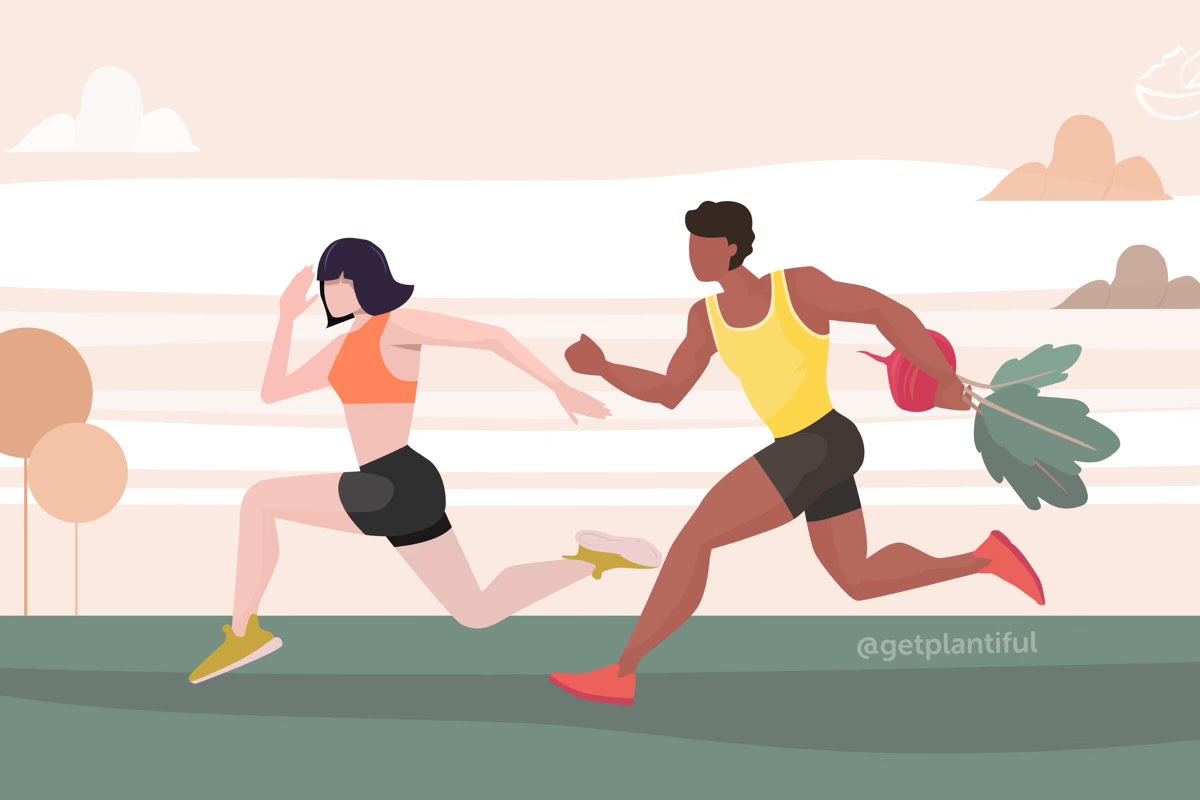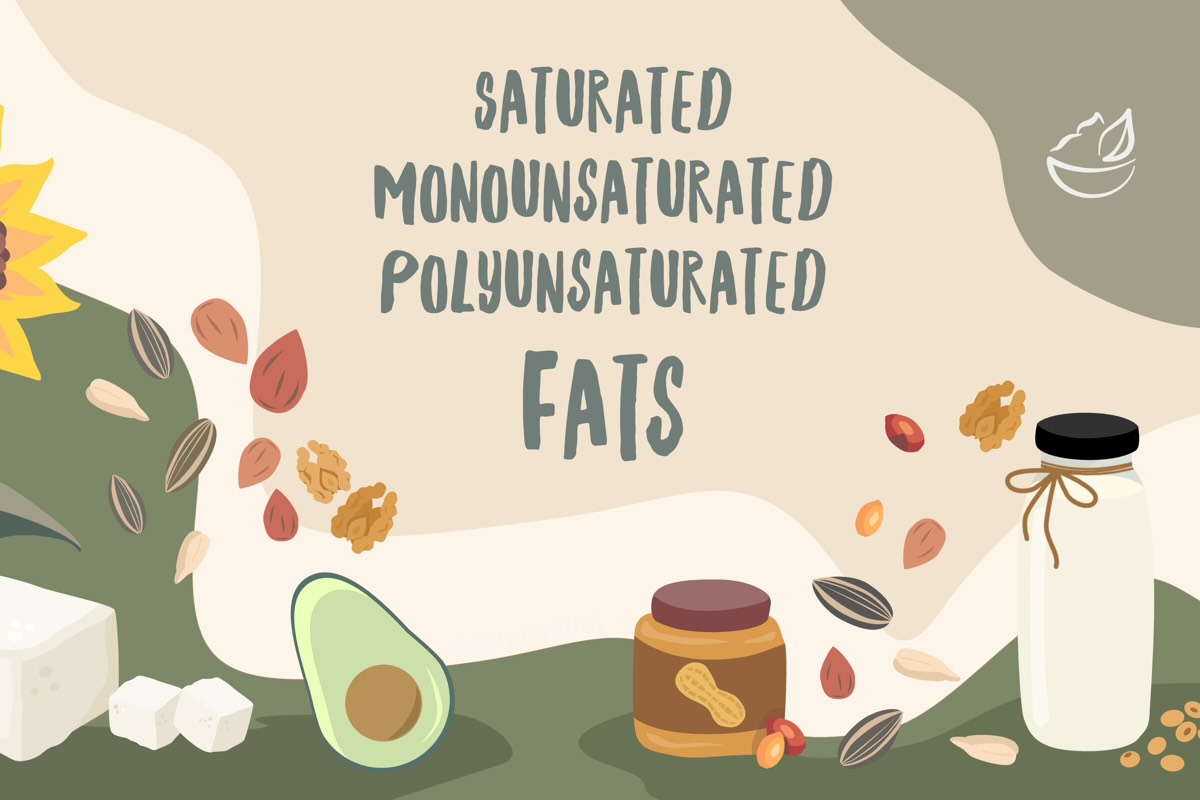Vegan Athletes? Hmm.. Athletes are switching to a Vegan lifestyle for a wide variety of reasons such as health, environment, and even performance. However, not everyone is able to follow a vegan diet that is wholesome and provides sufficient nutrition one needs. Due to the nutrition implications of limiting to certain foods, one, therefore, resorts to questioning — Is the Vegan Lifestyle even meant for athletes?
For coaches, athletes, and trainers who worry that the vegan diet may not be sufficient to support nutritional requirements to reach their highest levels — Fret not, because Going Vegan offers a multitude of benefits!
The number of athletes turning vegan is on the rise. Many athletes today are competing and winning while following a plant-based diet. Elite athletes that compete at high levels, all publicly endorse and discuss the value of their plant-based diets. These include famous tennis player Venus Williams, basketball player Kyrie Irving, and ultramarathoner Scott Jurek.
Scientific data points in the direction that eating a diet rich in unprocessed plant foods is linked to better overall health, effective immune function, better cardiovascular health, and longer lifespan. Plant-based diets appear to have the potential to improve performance in a range of areas, including sports.
A plant-based diet is usually high in carbohydrates, low in fat, and enriches the body with vitamins, minerals, as well as antioxidants. Despite that, if not consumed healthily, it can cause some deficiencies. However, with a wholesome well thought vegan meal prep, one can reap all the nutritional benefits from eating whole foods that can in fact improve performance.
Let’s get you to understand how that works:
You Don’t Need To Feast On Meat To Get Enough Protein: Is it True?
We know a common concern amongst vegan athletes is – if they get sufficient protein in their diets? In reality, there are various plant-based protein-fueled sources to provide enough energy to the body to stay super active.
One can not deny that vegan athletes require more proteins than usual in order to fuel the intensive workout regimes and the active lifestyle.
Yes, a plant-based diet can be a rich source of protein and can help you go meatless without worrying about anything. Vegan athletes need to ensure that the diets they consume are strategic and include all nutrients including phytonutrients and antioxidants in addition to protein.
How to Consume Vegan Protein Sources Like an Elite Vegan Athlete?
What are some of the common misconceptions?
By now you know athletes can very well thrive on plant-based diets.
However, certain misconceptions have taken over the world like a storm and should thereby be ignored. Some of these common misconceptions that you should know as a vegan athlete are:
Myth 1: Vegans Don’t Obtain Sufficient Protein To Build Muscle
NO! The reality is far from it. There is a good enough quantity of protein available in the majority of plant-based food sources.
Some of the protein-rich plant-based sources include pulses (beans, chickpeas, and lentils) that have more than 9 g of protein per serving. Another rich source includes tofu, tempeh, and seitan that have roughly 20-25 g of protein per meal (equivalent to four or five eggs).
To know more about protein high vegan sources, check out our Plantiful blog.
All one needs to do is simply ensure that the diet is varied and well-balanced. There’s a significant amount of protein available in whole grains, seeds, nuts, fruits before even considering the best vegan protein supplements available.
Protein intake combined with strength training sure does promote muscle synthesis but the protein requirement in the fitness bubble is often overestimated. According to a study, protein consumption over 1.6g per kg of body weight per day makes no difference in muscle mass or strength improvement.
Myth 2: A Vegan Diet Does Not Help The Body Get Full Range Of Amino Acids
Amino acids are the essential building blocks of protein and no matter the protein source, the foundation is the same. The elements that vary are the order and quantity in which they’re present.
Proteins are constituted of 20 Amino acids, of which some are essential while others are produced by the body. Animal foods are rich in all essential amino acids while plant-based foods lack at least one amino acid.
Despite that, if one consumes a balanced vegan diet that is inclusive of different whole plant foods, he can manage to get all the amino acids in the body that are needed for muscle strengthening and growth. For example, if one consumes beans, he gets enough lysine but not enough methionine but consuming grains would get him enough methionine and a small amount of lysine.
A diet consisting of a mix of pulses, whole grains, nuts, legumes, vegetables, and fruits. Thereby will give your body a good amount of amino acids essential for muscle development. It will further aid you in optimizing your results.
Not only that, if you feel your body isn’t getting enough amino acids, you’re wrong! Your body has its ‘free amino acid pool’ due to the consistent turnover of protein in your body. So if your meal lacks a certain amino acid. Your body has the power to draw from the pool to balance it out.
That’s exactly why there is no particular need to consume all protein sources in all the meals. Your body can sustain the amino acid intake quite well provided you are consuming a variety of protein sources throughout the day.
How to consume Protein Like A Pro?
Know The Sources Of Amino Acids Better:
Make sure to take a balanced vegan diet that includes a variety of plant-based sources.
As you know not all Amino Acids need to be consumed as your body already makes some. So, amino acids such as Histidine, Isoleucine, Leucine, Lysine, Methionine, Phenylalanine, Threonine, Tryptophan, Valine are the essential ones you need to consume as your body can’t manufacture them.
Therefore, make sure to take a balanced vegan diet that includes a variety of plant-based sources. Some of the sources for consuming these amino acids include grains, peanuts, legumes, soy, nuts, seeds, tofu, tempeh, quinoa, etc.
Here’s a small tip: You can go flexible with eating various sources of protein throughout the day instead of consuming the all-in-one meal.
Consume Plant-Based Complete Proteins
Here’s one power protein hero that’s a rich source of all the essential amino acids together: Soy! It is a rich source of phytochemicals and fats that prove to be beneficial for your body. Some of the common sources of soy are tempeh, tofu, edamame, etc.
To know more about Soy, check out our blog here.
Can A Vegan Diet Improve Athletic Performance?
A recent study suggests that vegans, lacto-ovo-vegetarians, and omnivorous recreational runners, all have the same exercise capability.
Despite that, making healthy choices with the diets you follow can help you stay fit. While a plant-based diet can be a rich source of protein, one can upscale the benefits. By making choices such as whole grains, vegetables, nuts instead of vegan cheese, crackers and other processed food choices.
What Makes For A Game-Changing Vegan Pre Training Or Competition Meal?
A high carbohydrate and low fat and fibre (as they slow down the digestive process) diet, that also contains a moderate amount of protein, makes for the ideal pre-training meal. It’ll help fuel your body and keep you active throughout the competition or your training.
Some of the recipes you can try in order to achieve this ideal nutritional profile include banana and water, a smoothie with a few almonds, toast spread with berries, etc.
We highly recommend you to download the Plantiful App — The best destination to turn into a vegan athlete with over 100+ delicious meatless recipes with various protein-rich meals, different plans and vegan resources to help you stay ultra-jacked!




